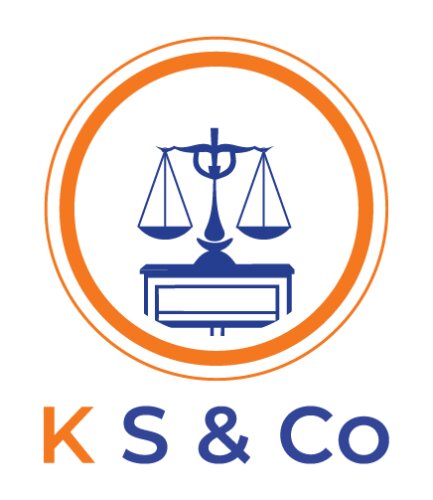Best Foreclosure Lawyers in India
Share your needs with us, get contacted by law firms.
Free. Takes 2 min.
Free Guide to Hiring a Real Estate Lawyer
Or refine your search by selecting a city:
List of the best lawyers in India
About Foreclosure Law in India
Foreclosure is a legal process through which lenders attempt to recover the balance of a loan from a borrower who has stopped making payments. In India, the process for foreclosure is governed primarily by the Securitisation and Reconstruction of Financial Assets and Enforcement of Security Interest (SARFAESI) Act, 2002. This act allows banks and financial institutions to auction residential or commercial properties without court intervention to recover loans that have turned into non-performing assets (NPAs).
Why You May Need a Lawyer
Foreclosure proceedings can be complex, and legal help may be essential in scenarios such as:
- Ensuring due process of law has been followed.
- Negotiating with lenders for alternative solutions like loan restructuring.
- Identifying potential errors in the foreclosure process that could invalidate actions taken by a lender.
- Protecting your rights and property from wrongful foreclosure.
- Helping navigate the legal system if judicial intervention becomes necessary.
Local Laws Overview
The key aspects of local laws relevant to foreclosure in India primarily relate to the SARFAESI Act. Notable points include:
- The act applies to secured creditors and not unsecured loans.
- The creditor can take possession of the property after issuing a notice to the borrower and allow a 60-day period to pay the dues.
- No court intervention is required, but the borrower can approach the Debt Recovery Tribunal (DRT) if aggrieved by any action of the creditor.
- Properties can be auctioned off after following due process and obtaining proper valuation reports.
Frequently Asked Questions
What is the SARFAESI Act, 2002?
The SARFAESI Act allows banks and financial institutions to auction properties when borrowers default on loans. It bypasses lengthy court proceedings for the recovery of non-performing assets.
Can borrowers stop the foreclosure process?
Borrowers can delay or stop the foreclosure process by approaching the Debt Recovery Tribunal if they believe the process is unjust or faulty.
What rights do borrowers have during foreclosure?
Borrowers are entitled to receive a notice, challenge the validity of the actions at DRT, and repay their dues to reclaim their property before it is auctioned.
Can any loan be subject to foreclosure under the SARFAESI Act?
No, only secured loans, where the property has been mortgaged as collateral, fall under the act.
How long does the foreclosure process take in India?
The timeline varies. The lender initiates the process with a 60-day notice, but subsequent legal challenges can prolong proceedings.
What happens to the surplus money from the auction of a property?
If the auction fetches more than the outstanding loan amount, the surplus is returned to the borrower.
Can a borrower negotiate with the bank after receiving a foreclosure notice?
Yes, borrowers can engage in discussions with the bank to restructure the loan or opt for another settlement to avoid foreclosure.
What happens if no one buys the property at the auction?
If a property does not sell at auction, the lender may reduce the reserve price and attempt another auction.
Is judicial intervention possible in foreclosure cases under the SARFAESI Act?
Borrowers can appeal to the Debt Recovery Tribunal against the actions of the lender, although the act minimizes court intervention.
Are foreclosures affecting both residential and commercial properties?
Yes, the SARFAESI Act applies to both types of properties, provided they are used as collateral for secured loans.
Additional Resources
Government Resources:
- The official Debt Recovery Tribunal (DRT) for legal resolutions.
- Understanding regulations through the Reserve Bank of India (RBI) that oversee banking practices.
Organizations:
- Consumer forums that may assist with rights related to real estate disputes.
- Non-governmental organizations (NGOs) providing legal advice on property matters.
Next Steps
If you need legal assistance with foreclosure in India, consider the following steps:
- Consult a qualified lawyer specializing in property or foreclosure law.
- Gather all relevant documents related to your loan and property.
- Prepare a timeline of events regarding correspondence with the lender.
- Contact and visit the nearest Debt Recovery Tribunal for advice on legal procedures.
- Understand your financial situation and explore options for restructuring debt with your lender.
Lawzana helps you find the best lawyers and law firms in India through a curated and pre-screened list of qualified legal professionals. Our platform offers rankings and detailed profiles of attorneys and law firms, allowing you to compare based on practice areas, including Foreclosure, experience, and client feedback.
Each profile includes a description of the firm's areas of practice, client reviews, team members and partners, year of establishment, spoken languages, office locations, contact information, social media presence, and any published articles or resources. Most firms on our platform speak English and are experienced in both local and international legal matters.
Get a quote from top-rated law firms in India — quickly, securely, and without unnecessary hassle.
Disclaimer:
The information provided on this page is for general informational purposes only and does not constitute legal advice. While we strive to ensure the accuracy and relevance of the content, legal information may change over time, and interpretations of the law can vary. You should always consult with a qualified legal professional for advice specific to your situation.
We disclaim all liability for actions taken or not taken based on the content of this page. If you believe any information is incorrect or outdated, please contact us, and we will review and update it where appropriate.
Browse foreclosure law firms by city in India
Refine your search by selecting a city.















